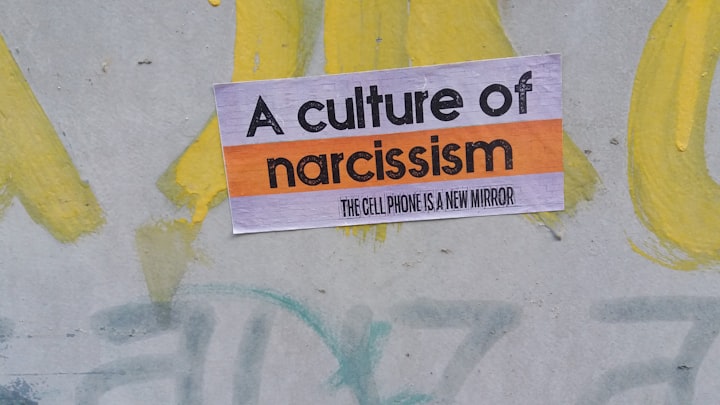
If you're in a relationship with a narcissist, it's not always easy to see the abuse. In fact, you may not even realize you're being abused at all.
That's because the narcissistic abuser is a master manipulator. He or she will make you feel like it's all your fault, that you're the one who's crazy, and that you're the one who's causing the problems.
In this article, we'll take a closer look at the cycle of abuse and how it affects both you and your loved ones. We'll also discuss how to break free from the cycle of abuse and get the help you need.
What Is Narcissistic Abuse?
When most people think of narcissists, the first thing that comes to mind is the caricature of the egotistical person who is only interested in themselves. And while this is certainly one type of narcissist, there is another kind that is far more insidious and often goes undetected.
This other kind of narcissist is the one who uses manipulation and abuse to control their partners. They may be charming and loving at first, but their true colors eventually shine through. And when they do, it can be a frightening, abusive and toxic experience.
Recognizing the Signs of Narcissist Abuse
It can be hard to spot the signs of narcissist abuse, especially when the person gaslighting you is someone you love and care for. This is why it's so important to be educated about the cycle of abuse, so that you can recognize it when it's happening.
The cycle of abuse typically goes like this
The abuser does something that causes the victim to feel defensive or emotional. The victim tries to talk to the abuser about what happened and why they feel hurt. The abuser denies any responsibility for their actions and instead blames the victim. The victim feels guilty, confused and ashamed. This leads to them withdrawing from the abuser, which only makes the abuser angry. The abuser then starts to stalk or harass the victim.
If you can identify this pattern in your relationship, it's time to get out.
The Narcissist's Manipulative Tactics
The narcissist's aim is always to maintain control and power over their victim. They use a range of manipulative tactics to do this, which can be very damaging to the victim's mental health.
Some of these tactics are listed below. The narcissist may:
-Criticize their victim incessantly
-Make them feel like they're not good enough or never good enough
-Put them down in public or in private
-Pretend to be the victim while gaslighting their victim into thinking they're the one at fault
-Control every aspect of their victim's life, from what they wear to who they speak to
The Cycle of Abuse in a Narcissist Relationship
It’s important to understand the cycle of abuse in a narcissist relationship. At first, it may seem like your partner is attentive, charming and loving. But then, over time, these behaviors may become harder for them to maintain and their true colors start to emerge.
The cycle of abuse can be broken down into five phases: idealization, devaluation, discard, hoovering, and back again to idealization. During the idealization phase, the narcissist will shower you with attention and affection in an attempt to win you over. Then they’ll start to devalue you by insulting your appearance or belittling your achievements. After they tire of you, they’ll discard you – this is when they cut off all communication with no explanation or warning. Finally comes the hoovering phase – this is when the narcissist will try to reel you back in by being extra nice or offering well-timed compliments.
The cycle of abuse never ends unless you manage to end it for good by setting firm boundaries (and sticking to them). It's also important that you practice self-care and seek professional help if needed so that you have a support system in place for yourself during this difficult time.
Coping With Narcissistic Abuse
It can be difficult to cope with the pain of narcissistic abuse. Many times, survivors have a hard time recognizing that they are in an abusive relationship and can feel a lot of shame and guilt as they process their experience.
One way to cope is to focus on self-care. This may look like engaging in activities such as yoga or meditation that help you stay grounded and relax, getting enough sleep, eating healthy, and engaging in regular physical activity – anything that makes you feel good about yourself. It’s also important to find positive ways to fill your time and energy so that you don’t become overwhelmed by the feelings of hurt and anger.
Another way to cope is to reach out for support from a trusted individual or group, such as a counselor or a support group for those who have experienced narcissistic abuse. Sharing your story with a compassionate listener can be very healing, allowing you to process your emotions and helping build resilience over time.
Preparing Yourself for Life After a Relationship With a Narcissist
Now that you know what to expect during and after a relationship with a narcissist, it’s important to recognize how difficult the process is going to be. As with any abusive relationship, leaving the situation is only half the battle—you will also need to find ways to cope with the emotional aftermath and rebuild your confidence.
Start by making yourself a priority again. If you need therapy or counseling, seek it out. You are allowed to take time for yourself and make sure you’re healing emotionally. Additionally, create healthy boundaries for yourself so that you aren’t exposed to emotional triggers or pushed past your limits. Make sure you’re surrounded by people who love and support you during this time, as well as activities that bring joy into your life, such as exercise or art classes. Finally, remember that this roller coaster of emotions won’t last forever; eventually you will come out on the other side of things with new strength and understanding of yourself.
Conclusion
In short, narcissists use a number of tactics to abuse their victims. These tactics can be psychological, emotional, and/or physical. Narcissist abuse is a very real and dangerous problem, and it can be hard to break free from. If you or someone you know is in a relationship with a narcissist, it is important to get help.
About the Creator
Som Dutt
I write about Psychology and Philosophy. I am the top writer in Psychology and Philosophy on Medium.com
https://somdutt777.medium.com






Comments (1)
I just wanted to say thank you for sharing your story with us. Your words were inspiring and touched me deeply. I'm now a devoted fan of your work, and can't wait to see more of your writing in the future.